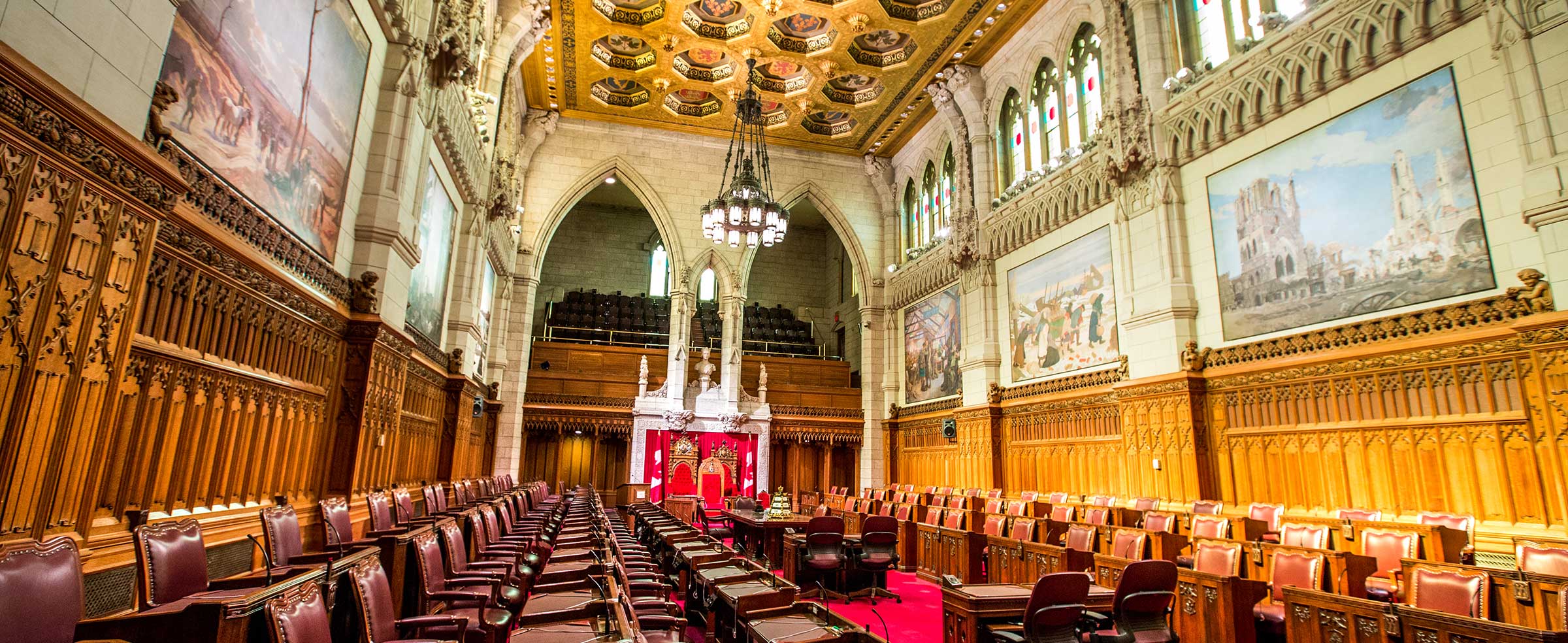Canadian Public Opinion on Governance and the Public Service

Canadian Public Opinion on Governance and the Public Service
 What does the public expect from governments, and how well do they believe their country, province and local municipality are governed? To address these questions, The Environics Institute partnered with the Institute on Governance to conduct a landmark national public opinion survey on governance and the public service. The research is based on an online survey conducted July 31 to August 9, 2014, with a representative sample of 2,000 Canadians, aged 18 and over. The sample was weighted by region, age and gender to match the country’s population.
What does the public expect from governments, and how well do they believe their country, province and local municipality are governed? To address these questions, The Environics Institute partnered with the Institute on Governance to conduct a landmark national public opinion survey on governance and the public service. The research is based on an online survey conducted July 31 to August 9, 2014, with a representative sample of 2,000 Canadians, aged 18 and over. The sample was weighted by region, age and gender to match the country’s population.
Background
Governments have played a central role in the building of modern-day Canada, and in past generations the Canadian public has been supportive of the role and place of government as important institutions to collective well-being and economic security. Such confidence has been eroding over the past several decades, in part through broader socio-cultural trends (e.g., a general decline in deference to authority), and political trends (the emergence of a movement defining government as the problem rather than the solution). Governments at all levels are now facing increasing scrutiny and political pressures while at the same time contending with increasing expectations for accountability and performance.
Most of the public discussion about the role of government has focused on policies and spending decisions, with little if any attention given to the process of governance and how our governments should operate. Elected officials are front and centre as the leaders taking responsibility for government policy and making the important decisions, but behind the scenes it is the public service that is responsible for making government run and implementing policies. Politicians come and go as different political parties take the reigns of power, but the public service plays an essential non-political role of ensuring that the institutions of government function effectively, efficiently and with continuity.
This raises important questions about what exactly Canadians know and think about how their country, province and municipality are governed, and about the people who carry out these responsibilities. Anecdotal evidence is helpful, but the only way to provide definitive answers is through properly designed survey research. Such research can accurately reveal current public awareness, knowledge, perceptions, expectations and priorities of the Canadian public generally, as well as by important segments of the population (e.g., across regions, generations, and socio-economic status). This type of empirical evidence is essential to understanding the extent to which there is an underlying stability or a pending crisis in public confidence in our government institutions, and what might be required to address it.
The results of this research are being released initiallly through a series of in-depth articles by noted journalist Kathryn May in the Ottawa Citizen, starting on Saturday, December 27, 2014. These stories also include coverage of the AmericasBarometer 2014 survey
- Read Ottawa Citizen story for December 27: Mistrust between bureaucrats and politicians bad for Canada.
- Read Ottawa Citizen story for December 28: Local government gets better marks than other levels.
- Read Ottawa Citizen story for December 29: Canadians ready let government departments share personal data
- Read Ottawa Citizen story for December 30: Canadians satisfied with life if they have enough money.
For more information, contact Keith Neuman
Keywords: government role/effectiveness, democracy/governance, federal government/institutions, government policy/priorities, politics, media, private sector, public sector
Downloads / Supporting Material
Like what you're reading? With our bi-monthly e-newsletter, you can receive even more with the latest details on current projects, news, and events at the institute.
Subscribe